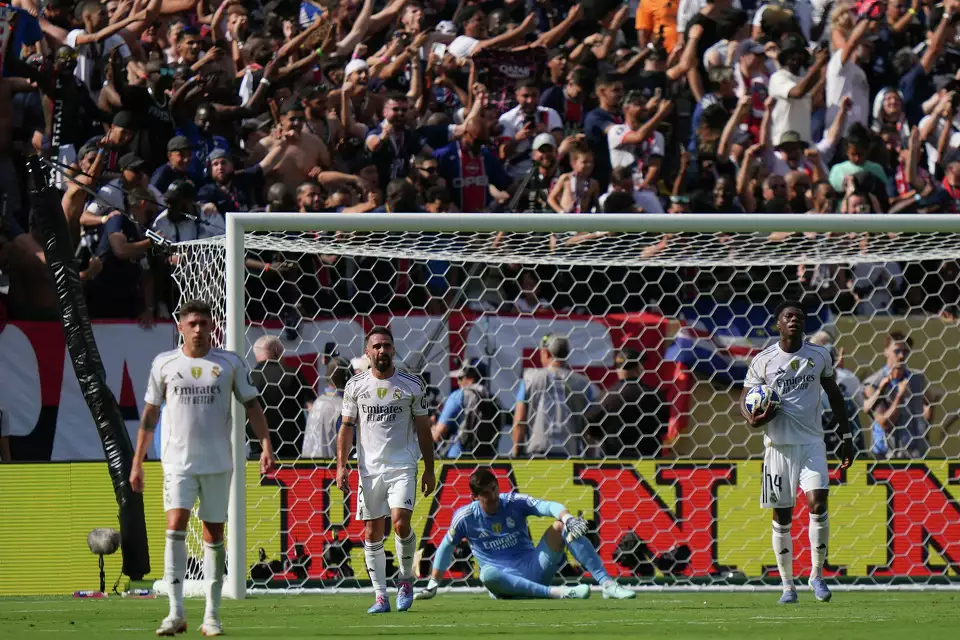
A Landmark Step Toward Player Welfare and Fair Competition
In a significant development within the world of professional football, FIFA, the global governing body for soccer, has announced that it has reached an agreement with soccer players’ unions concerning minimum rest standards for players across various leagues and competitions. This agreement marks a pivotal moment aimed at safeguarding player health, enhancing performance, and ensuring fair play on the field.
Background: The Growing Need for Rest Standards in Modern Soccer
Soccer has evolved into an intense, year-round sport with demanding schedules. The proliferation of international tournaments, club competitions, and league matches has led to an increasingly congested fixture calendar. This hectic schedule has raised concerns about :
- Burnout and fatigue among players
- Higher injury rates
- Decline in playing quality
- Potential long-term health issues
Players and their unions have been vocal advocates for better rest periods, emphasizing that adequate recovery is essential not only for individual health but also for maintaining the integrity and competitiveness of the sport. Recognizing these concerns, FIFA initiated discussions with stakeholders to develop standardized minimum rest requirements.
Details of the Agreement: What Does the New Rest Standard Entail?
The agreement, as detailed in recent reports, introduces clear guidelines designed to ensure players receive sufficient time between matches. While the specifics may vary slightly across leagues and areas, the core principles include:
- Mandatory Rest Periods: Players must have at least 48 hours of rest between competitive matches.
- Rest Period Enforcement: Clubs and organizers are responsible for scheduling that respects these minimum rest periods.
- Recovery Time: Emphasis on not just off-time but also adequate recovery activities such as physiotherapy, nutrition, and mental health support.
- Monitoring and Compliance: FIFA will implement monitoring mechanisms to ensure adherence, including possible sanctions for non-compliance.
This approach aims to balance the demanding schedule with player well-being, transferring decision-making from individual leagues to a more unified, standardized framework established by FIFA.
Implications for Players and Clubs
Enhanced Player Health and Performance
With guaranteed rest periods, players can recover better physically and mentally, reducing the risk of injuries like muscle strains, ligament tears, and fatigue-related ailments. A rested player performs better, demonstrating higher levels of precision, agility, and decision-making on the pitch.
Fair Competition and Scheduling
Standardized rest standards help eliminate scheduling disparities across different competitions, fostering a level playing field. Clubs will need to work within these constraints, possibly influencing match calendars and tournament formats.
Players’ Union’s Role and Advocacy
The role of players’ unions has been instrumental in pushing for these standards. Their advocacy underscores the necessity of prioritizing athlete welfare, aligning with broader shifts toward health-conscious practices in sports.
Challenges and Future Perspectives
Despite the positive outlook, implementing these standards uniformly across all leagues worldwide presents challenges. Some of these include:
- Variability in league scheduling and international commitments
- Potential resistance from broadcasters and commercial interests
- Monitoring and enforcement logistics across diverse regions
Nevertheless, this agreement is a foundational step. Going forward, FIFA and stakeholders are expected to refine and expand upon these standards, possibly incorporating:
- Additional guidelines on traveling and jet lag management
- Incentives for clubs and leagues that comply
- Player education programs on injury prevention and recovery
Conclusion: Toward a Healthier and More Sustainable Sport
The agreement between FIFA and soccer players’ unions on minimum rest standards signals a progressive move toward prioritizing athlete health, fairness, and the longevity of the sport itself. It demonstrates a recognition that sustainable success in soccer depends not just on performance but fundamentally on the well-being of the players who make the sport so captivating.
While challenges remain in implementing these standards globally, the collaboration marks a positive shift in the sport’s governance. Stakeholders now have a more structured framework to work with, paving the way for safer, more equitable, and more enjoyable competitions for players and fans alike.
As soccer continues to evolve, ongoing dialogue and flexibility will be crucial to adapt these standards to future innovations and challenges. Still, the foundation laid by this agreement offers hope for a healthier future for the beautiful game.
Final Thoughts
The commitment from FIFA and players’ unions to uphold minimum rest standards reflects a broader trend toward athlete-centered policies in sports. Ensuring players get adequate rest not only benefits their health but also enhances the quality of the game for spectators worldwide. This is a victory for player welfare, the integrity of the sport, and the future of football.
For more updated news please keep visiting Prime News World.









